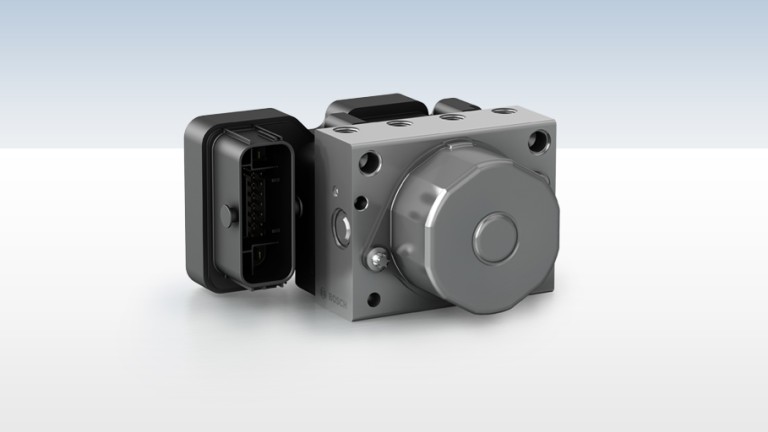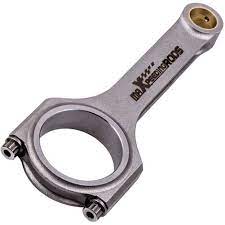The Importance of Alternators in the Automotive Industry
When it comes to the modern automobile, the alternator plays a crucial role in ensuring that the vehicle functions properly. From providing power to the electrical systems to keeping the battery charged, the alternator is an essential component in today’s vehicles. In this article, we will take an in-depth look at the alternator, its functions, and its importance in the automotive industry.
What is an Alternator?
An alternator is an electrical generator that converts mechanical energy into electrical energy in the form of alternating current. It is typically found in vehicles with an internal combustion engine and is responsible for providing power to the electrical systems and charging the battery. The alternator works in conjunction with the battery to power the car’s electrical components, such as the lights, radio, and air conditioning, while the engine is running.
The alternator is driven by the engine’s crankshaft through a belt and pulley system. As the engine runs, the alternator spins and generates electrical energy, which is then used to power the vehicle’s electrical systems. In addition, the alternator also charges the battery, ensuring that it remains fully charged and ready to start the engine the next time the vehicle is used.
The Functions of an Alternator
The primary function of the alternator is to provide electrical power to the vehicle’s electrical systems. This includes powering the lights, radio, air conditioning, and other electronic components while the engine is running. Without the alternator, the battery alone would not be able to power these systems for an extended period of time.
Another important function of the alternator is to charge the battery. When the engine is running, the alternator continuously charges the battery, ensuring that it remains at an optimal state of charge. This is essential for starting the engine and powering the vehicle’s electrical systems when the engine is not running.
Finally, the alternator also helps to regulate the voltage in the vehicle’s electrical system. It ensures that the electrical components receive a consistent and stable supply of power, preventing damage to the components and ensuring that they operate properly.
The Importance of Alternators in the Automotive Industry
Alternators play a crucial role in the automotive industry, as they are essential for powering the electrical systems in modern vehicles. Without an alternator, the battery alone would not be able to provide enough power to operate the vehicle’s electrical components for an extended period of time. This would result in a loss of functionality for important systems such as the lights, radio, and air conditioning, making driving the vehicle unsafe and uncomfortable.
In addition, the alternator is also responsible for charging the battery, ensuring that it remains at an optimal state of charge. This is essential for starting the engine and powering the vehicle’s electrical systems when the engine is not running. Without a properly functioning alternator, the battery would quickly become depleted, resulting in an inability to start the engine and power the vehicle’s electrical components.
Furthermore, alternators help to regulate the voltage in the vehicle’s electrical system, preventing damage to the electrical components and ensuring that they operate properly. This is essential for maintaining the reliability and safety of the vehicle’s electrical systems, as well as preventing damage to expensive electronic components.
Common Issues with Alternators
Like any other automotive component, alternators are prone to wear and tear over time. One of the most common issues with alternators is a worn-out or damaged belt, which can result in a loss of power to the electrical systems and a failure to charge the battery properly. In addition, the alternator’s internal components, such as the diodes and voltage regulator, can also fail over time, resulting in a loss of power or an inability to charge the battery.
Another common issue with alternators is a buildup of dirt and debris, which can result in reduced efficiency and a loss of power. This can be prevented by regularly cleaning the alternator and ensuring that it remains free of contaminants.
Finally, alternators can also fail due to excessive heat, which can cause the internal components to malfunction. This can be prevented by ensuring that the alternator remains properly cooled and that the vehicle’s cooling system is functioning properly.
Conclusion
In conclusion, the alternator is a crucial component in today’s vehicles, providing power to the electrical systems and charging the battery. Without a properly functioning alternator, the vehicle’s electrical components would not receive enough power to operate, resulting in a loss of functionality and safety. It is essential for vehicle owners to regularly maintain their alternators to prevent issues and ensure that their vehicles remain reliable and safe to drive.
,refusal: null








Hey guys! Just downloaded the Sikkimgame APK from sikkimgameapk. Seems legit, gonna give it a whirl and see if it’s worth the hype! Wish me luck!
Alright, so I needed to get back into my Bet188 account, and bet188betlogin made it super easy. Quick and straightforward. Just what I needed! If you’re having trouble logging in, give it a shot: bet188betlogin
So 888betstanzania yeah? Lets see what this sites like, maybe theyll be some easy wins. Fingers crossed for some big payouts 888betstanzania
Yo, 28win! Been playing here for a bit, and it’s pretty solid. Easy to navigate, and I’ve had a few decent wins. Check it out! 28win
Alright, heard about sv388 10naga from a friend. Gave it a try, and honestly, not bad! Good selection of games, and the site runs smoothly. Worth a punt if you’re looking for something new. sv388 10naga
Winnermxcasino is the name, winning is the aim! Just kidding. Decent casino, nothing mind-blowing, but solid. Worth checking out if you’re hunting for a new place to play. See for yourself at winnermxcasino.
Alright, plataformaa97 seems alright. Nothing special, a bit basic, but it works. If you’re on a budget, it might be worth a look. Take a peek at plataformaa97.
Alright, 191betlogin is pretty decent. Nothing too fancy, but gets the job done. Quick access and good navigation. I recommend checking out 191betlogin for yourself!